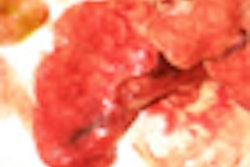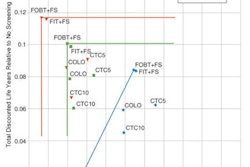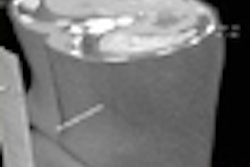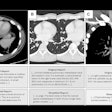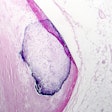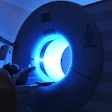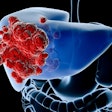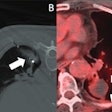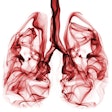Dietary flaxseed protects against the harmful effects of radiation, according to a new study in BMC Cancer, which found that the foodstuff when given to mice not only protected tissues before radiation exposure occurred, it reduced damage after exposure as well.
The animals survived longer and in much higher numbers after eating flaxseed versus a normal diet prior to exposure to x-ray radiation.
The study demonstrates that dietary flaxseed, already known for its strong antioxidant and anti-inflammatory properties, works both to mitigate and protect against radiation pneumonopathy, said principal investigator Melpo Christofidou-Solomidou, PhD, a research associate professor at the University of Pennsylvania.
Christofidou-Solomidou and her team performed several experiments in which groups of mice (n = 15-25) were fed a diet supplemented with 10% flaxseed beginning three weeks before exposure to a 13.5-Gy thoracic radiotherapy dose. Other mice were given a normal diet without the addition of flaxseed. The lungs of the surviving mice were evaluated for blood oxygenation levels, inflammation, and fibrosis.
At four months, 70% to 88% of the irradiated flaxseed-fed animals were still alive, compared with only 40% of the controls, the authors wrote. In addition, the irradiated flaxseed-fed mice had decreased fibrosis compared to the mice not fed flaxseed, the authors reported (BMC Cancer, June 24, 2011, Vol. 11:269).
The group also found that bronchoalveolar lavage protein and weight loss associated with radiation cachexia was significantly decreased in all flaxseed-fed groups versus animals eating a normal diet. Inflammatory cell influx to the lungs also decreased significantly, except when flaxseed ingestion was delayed by four and six weeks after x-ray exposure.
The increased survival among the mice that ate flaxseed was noteworthy, but the reduced fibrosis was also exciting, Christofidou-Solomidou said in a statement about the research. "Once a lung becomes 'stiff' from collagen deposition, it's irreversible," she said. "We have discovered that flaxseed not only prevents fibrosis, but it also protects after the onset of radiation damage."
Dietary flaxseed following radiation therapy mitigates radiation damage by decreasing pulmonary fibrosis, inflammation, cytokine secretion, and lung damage while enhancing survival in mice, the authors concluded. Supplementation with flaxseed "may be a useful adjuvant treatment mitigating adverse effects of radiation in individuals exposed to inhaled radioisotopes or incidental radiation," they wrote.
"Flaxseed is safe, it's very cheap, it's readily available, [and] there's nothing you have to synthesize," Christofidou-Solomidou said. "It can be given orally so it has a very convenient administration route. It can be packaged and manufactured in large quantities."





